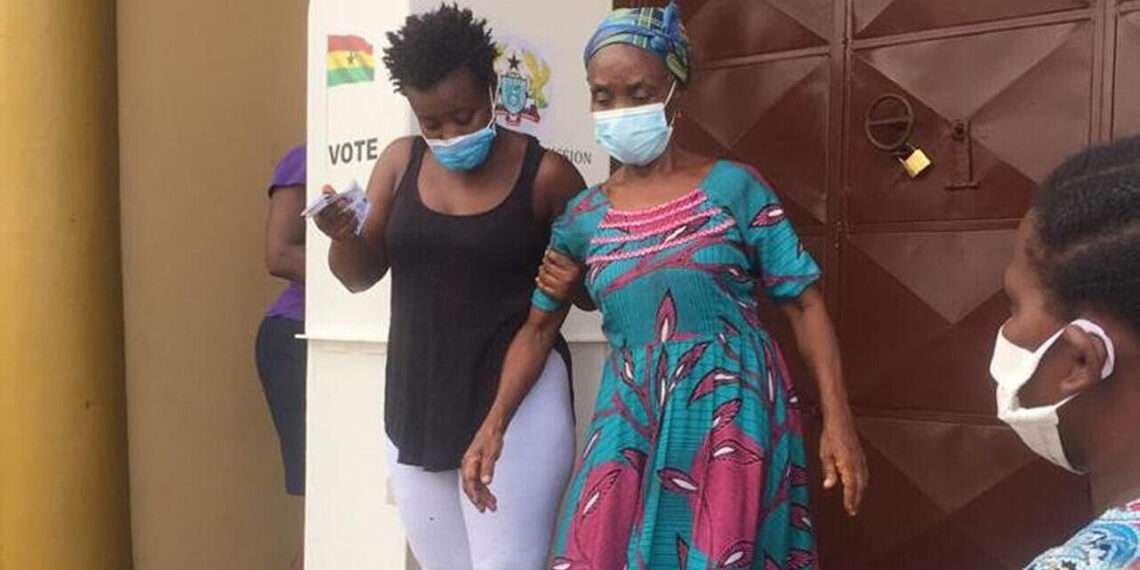Despite Ghana’s commitment to signing various international and global declarations and protocols that advocate for increased women’s participation and inclusion in governance, particularly representation in public life, the country is yet to pass its Affirmative Action Bill into law since its initiation in 2011.
The United Nations (UN) declared that for women to be effective in any governance space, a minimum threshold representation and participation of 30% is required. This implies that any participation of women below 30 percent makes women ineffective within that decision-making space.
While women constitute the majority of Ghana’s population, with 50.7% forming the country’s total population according to the Ghana Statistical Service 2021 Population and Housing Census, the majority of women remain under-represented in the governance processes of the country either at the national or at the local levels.
Women’s Representation In Ghana’s Political Life
On the political front, since 1992, when the country ushered into its fourth Republican democracy after over a decade of military rule, Ghana has held eight (8) relatively successful parliamentary and presidential elections in addition to seven (7) district-level elections.
However, women’s representation in decision-making, in both local and national elections has failed to reach the 30 percent United Nations recommended minimum threshold in women’s representation in decision-making.
For instance, out of the two hundred and seventy-five Members of Parliament in the country, there are only forty female Members of Parliament, representing 14.5 percent.
Again, the recent District Level Elections (DLEs) also revealed a worrying trend of dwindling participation of voters in the local elections and low representation of women in local governance in the country.
The District Level Elections, which were held on December 19, last year, revealed that 95.9 percent of the 6,243 persons elected as assembly members were males, while females constituted only 4.1 percent.
While the percentage of elected women assembly members is an increase of 0.3 percent compared to the 3.8 percent in the previous election (2019), it cannot be said to be the best.
It is worth emphasizing that women in Ghana have contributed immensely to Ghana’s political life, particularly from the days of Ghana’s independence struggle to date.
Women have without doubt contributed resources and actively articulated their concerns and issues within both their households and in the public arena, yet despite the pivotal role Ghanaian women play within the family, community, and society at large, their presence in key decision-making positions in any of the sectors of economic, political and social life is minimal.
They are relegated to the background as far as political decision-making is concerned. This is because of the absence of concrete policy measures such as the passage of the Affirmative Action Bill into law to ensure that the structural inequalities between women and men are taken into account in promoting participation in policy decisions.
The low participation and representation of women in governance processes in the country is very untenable as it does not promote sustainable development.
The Programs Officer of the Center for Democratic Development (CDD) Ghana, Vera Abena Addo, while commenting on the worrying trend, emphasized the crucial need for the Affirmative Action Bill in addressing the historical marginalization of women in decision-making roles.
She strongly asserted that, the low participation of women in the country’s political life not only retard development but also goes a long way to weaken the country’s democratic practice and its struggle toward inclusion.
“The Affirmative Action Bill recognizes the marginalization of women, and for a very long time, women who make up more than half of the population have not been part of decision-making. This undermines our development, democracy, and issues about inclusion participation among others”
Vera Abena Addo
Ms. Abena Addo, while advocating for the prioritization of women’s participation in the decision-making process by the government and all stakeholders, further underscored the importance of the passage of the Affirmative Action Bill into law.
According to her, the passage of the Affirmative Action Bill into law would go a long way to benefit the country as the implications of the bill extend beyond women’s issues, pointing to evidence indicating improvements in decision-making outcomes when women are actively involved.
It is worthy to emphasize that women are hugely significant in national development, hence increasing their participation in governance processes in Ghana both at the local and national levels undoubtedly require urgent actions by the government and all stakeholders.
There is therefore no a better time than now, to call for the immediate passage of the Affirmative Action Bill into law by Parliament for the good of the country’s democratic practice and the country’s journey towards inclusion.
READ ALSO: Ghana Anti-Corruption Coalition Partners Key State Institutions To Combat Illicit Campaign Financing





















